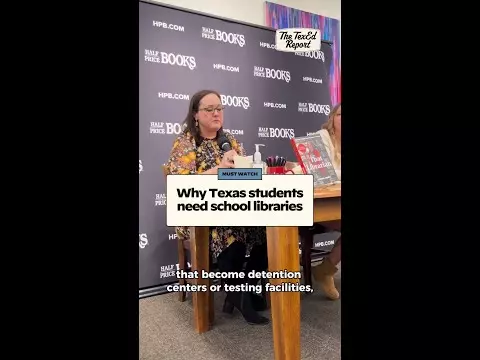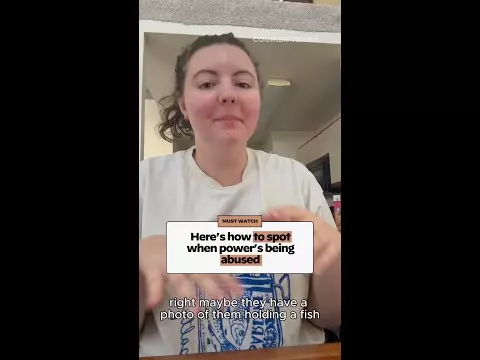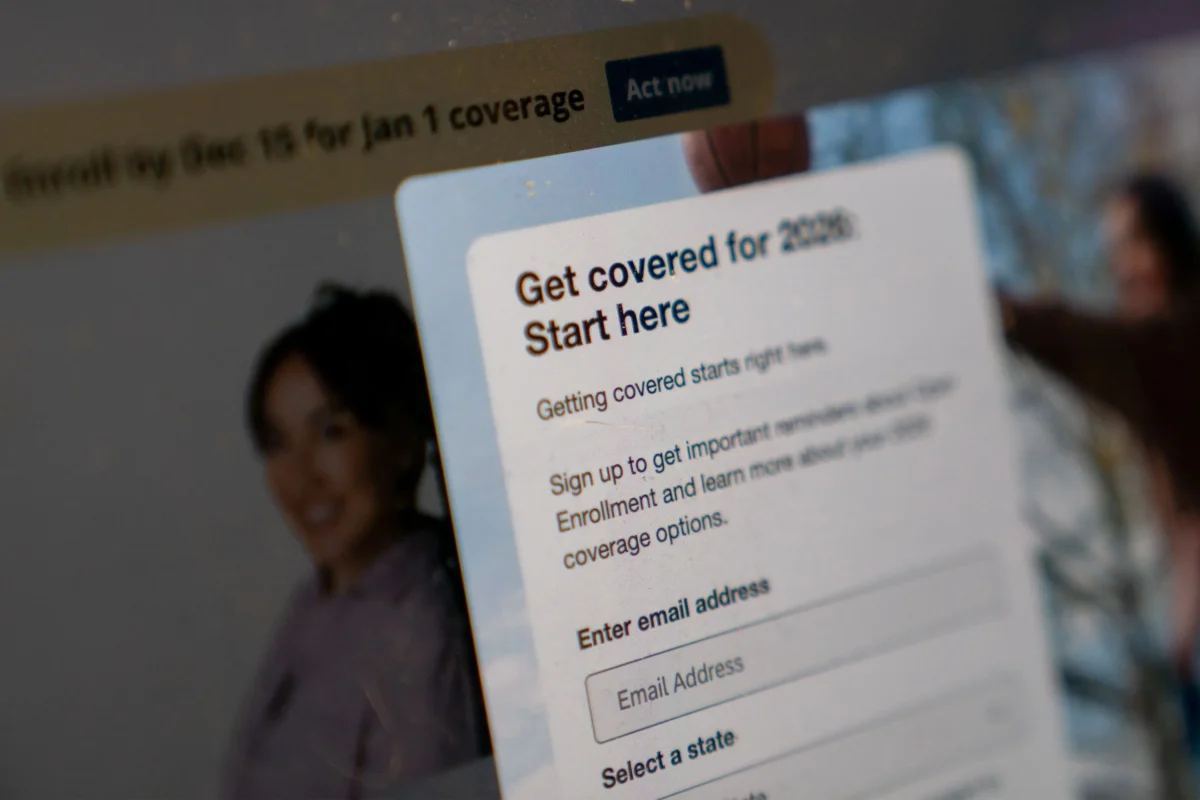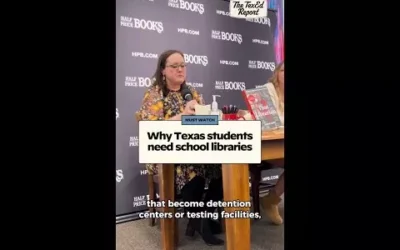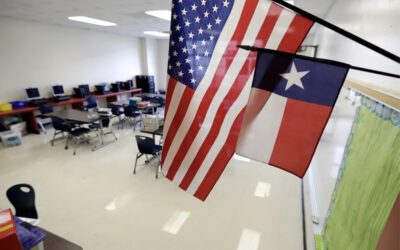
It wasn’t just about public school funding and private school vouchers this legislative session. Lawmakers also focused on cell phone bans and infusing religion into public schools. (Photo by Nimito/Getty Images)
From banning DEI and cell phones to forcing prayer and the Ten Commandments into classrooms, Texas lawmakers passed several bills impacting public school students.
Although private school vouchers and public school funding dominated the headlines this legislative session, several other education-focused bills are headed the Gov. Greg Abbott’s desk.
Here’s a rundown of where those bills ended up.
Texas bans diversity, equity, and inclusion efforts in public schools
Senate Bill 12, which bans diversity, equity, and inclusion measures in K-12 public schools, passed through the legislature and will take effect on Sept. 1 unless Abbott vetoes it.
The bill was a legislative priority for both Abbott and Lt. Gov. Dan Patrick, and was authored by Rep. Brandon Creighton, the powerful Republican lawmaker from Conroe who also sponsored the Senate’s $1 billion school voucher plan.
It prevents schools from developing policies or training that reference race, ethnicity, gender identity, or sexual orientation, bans them from using DEI as a factor in hiring decisions, creates an avenue for parents to file complaints about violations, and requires districts to create policies for disciplining employees who engage in DEI-related tasks.
It also prohibits school districts from authorizing or sponsoring student clubs based on sexual orientation or gender identity, meaning LGBTQ+ and gay-straight alliance groups will be prohibited in schools.
“This bill is a calculated attempt to censor teachers, disempower students, and stifle honest conversations in Texas classrooms,” said Rocío Fierro-Pérez, political director for the Texas Freedom Network. “SB 12 enables politicians to rewrite history, erase identities, and silence student voices. Every young person deserves a school environment where they are seen, supported, and allowed to thrive.”
This bill expands on a Republican push to eliminate DEI initiatives statewide. In 2023, lawmakers passed Senate Bill 17, which bans DEI at public universities, and Abbott issued an executive order banning DEI efforts in government offices in January.
Texas lawmakers infuse religion into public schools
The Texas Legislature is forcing prayer, and the Ten Commandments, into public school classrooms.
Lawmakers sent Senate Bill 11, which requires school boards to vote on whether to allow a period of prayer and reading of the Bible or other religious text, to Abbott. The bill also allows parents to give permission for their child to have a prayer period regardless of school district policy.
Opponents of the bill criticized it for promoting state-sanctioned prayer.
“This bill allows politicians to impose their preferred religion on millions of Texas families,” Fierro-Pérez said. “SB 11 is a blatant violation of the First Amendment and an escalation in the ongoing effort to turn public schools into tools of government-endorsed religion. Coercing students into state-sanctioned prayer disrespects the religious and nonreligious beliefs of families across our state.”
Senate Bill 10 also passed, which requires that every public school classroom in Texas display the Ten Commandments.
Texas follows Louisiana and Arkansas in passing legislation requiring that the Ten Commandments be displayed in classrooms — although a Louisiana federal court ruled that the law violated a constitutionally required separation of church and state and has not been implemented.
These bills expand on a conservative push to infuse more Christianity into public schools, as the Texas Board of Education approved Bluebonnect Learning in November, which are learning materials for kindergarten through eighth-grade students that includes a Bible-based curriculum.
STAAR testing stays for Texas students
Lawmakers failed in their effort to remove State of Texas Assessments of Academic Readiness, or STAAR, testing this legislative session.
House Bill 4 would have replaced STAAR testing, which is a standardized test that measures how well students have learned and can apply the knowledge and skills outlined in the Texas Essential Knowledge and Skills, for three shorter tests given throughout the school year.
The Senate and House failed to come out of closed-door negotiations taking place over the bill in time, missing a key legislative deadline.
The state’s recent public school ratings, which are partly determined by students’ STAAR results, made headlines. Critics called the results a “politically motivated attack” and the methodology of testing a “deceptive, harmful, and a blatant attempt to discredit neighborhood public schools to justify school privatization schemes.”
Only 10% of districts throughout the state got an A rating, 73% got a B or a C, and 17% got a D or an F. And districts with higher rates of low-income students were more likely to get a D or an F than wealthier neighboring districts. View the grades by school or district here.
Texas lawmakers split on excused student absences
Senate Bill 207 was signed by Abbott and requires school districts to excuse student absences for mental health appointments. The bill starts with the 2025-26 school year.
House Bill 161 guaranteed up to 10 excused absences each year for students diagnosed with menstrual disorders like endometriosis or Polycystic Ovary Syndrome, but that bill died in the legislature.
Cell phones banned in Texas classrooms
HB 1481 is headed to Abbott and requires schools to implement cell phone bans or storage policies starting Sept. 1.
Under the bill, which has faced pushback from parents citing safety concerns, schools have to prohibit students from bringing devices on campus, or provide a way for the student to store the device while on school property.
Prohibited devices include cell phones, tablets, smartwatches, radio devices, paging devices or any other electronic devices “capable of telecommunication or digital communication.”
The bill also requires schools to have punishments in place for students who are found using the devices.
Intrusions to higher education
Senate Bill 37 is headed to Abbott and gives governor-appointed boards more power to control what is taught and who is teaching at public colleges and universities.
It also rates degree programs based on their return on investment, lets university regents appointed by the governor interfere in hiring, allows the public to file complaints alleging that schools violated the law, and creates a state office with the power to investigate universities and threaten their funding if they don’t comply with the law.
Critics said the bill limits the free exchange of ideas on campuses, infringes on faculty freedom, and gives campus administrators unilateral control over curriculum and faculty hiring.
“In the same session that they forced through a private school voucher program to undermine this state’s K-12 schools, Texas lawmakers chose to double-down on their attacks against our colleges and universities,” said Zeph Capo, president of Texas AFT. “Hundreds of faculty and students testified to the expected catastrophic impacts of this legislation, from the exodus of top teaching talent to the waning of Texas higher educational institutions’ prestige.”
Support Our Cause
Thank you for taking the time to read our work. Before you go, we hope you'll consider supporting our values-driven journalism, which has always strived to make clear what's really at stake for Texans and our future.
Since day one, our goal here at COURIER Texas has always been to empower people across the state with fact-based news and information. We believe that when people are armed with knowledge about what's happening in their local, state, and federal governments—including who is working on their behalf and who is actively trying to block efforts aimed at improving the daily lives of Texas families—they will be inspired to become civically engaged.





